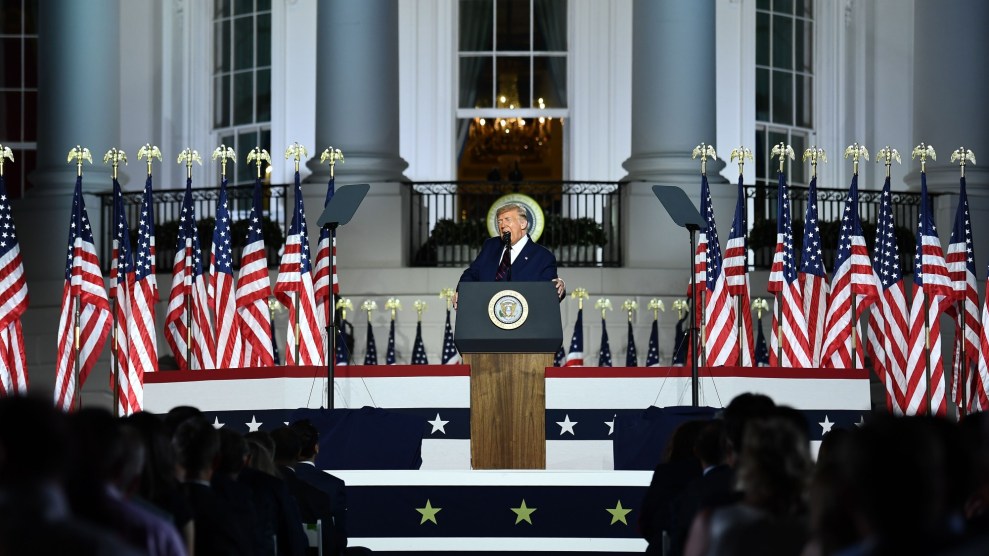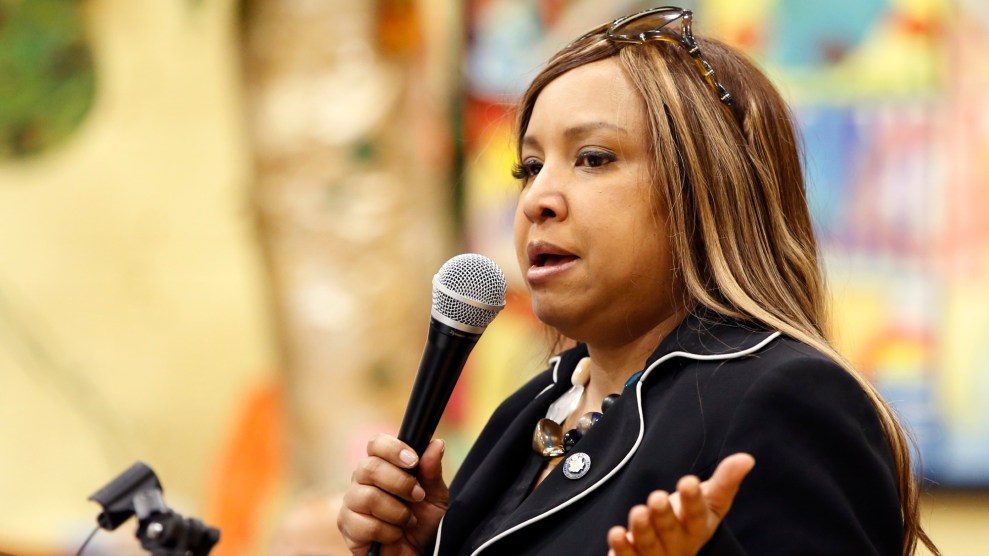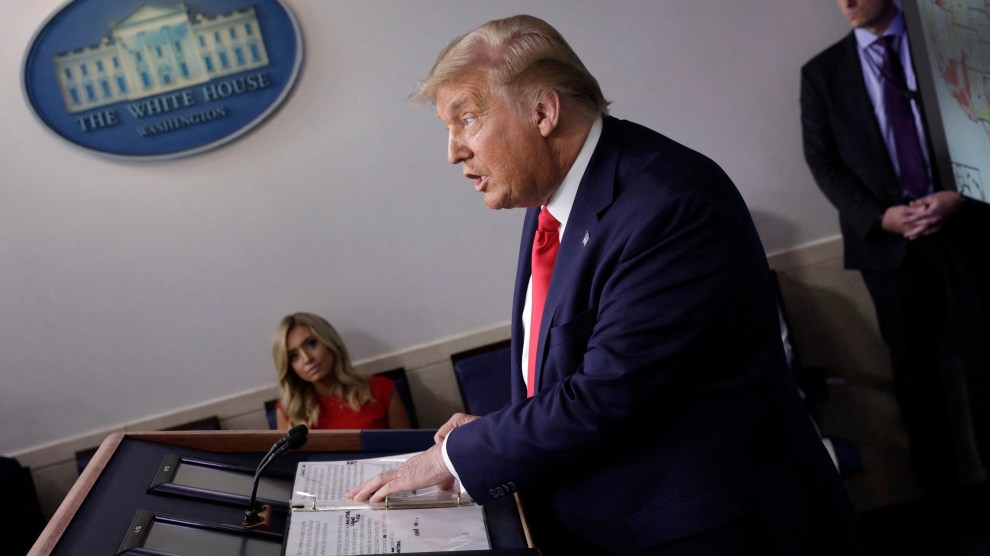
Donald Trump won't face consequences for using the White House to give his Republican National Convention speech on August 27, 2020. Brendan Smialowski/AFP via Getty
Thirteen top Trump administration officials broke a law restricting partisan political activity by federal employees, but they will face no legal consequences, a federal watchdog agency said in a report released on Tuesday.
In a 59-page report, the Office of Special Counsel, or OSC, a small agency that enforces federal workplace laws, said that the Trump administration set up “a taxpayer-funded campaign apparatus within the upper echelons of the executive branch” and showed “willful disregard” for the law. They did so, according to the OSC, through various 2020 activities including conducting the Republican National Convention at the White House.
The officials cited in the report are:
- Secretary of State Mike Pompeo
- Acting Homeland Security Secretary Chad Wolf
- White House Chief of Staff Mark Meadows
- National Security Advisor Robert O’Brien
- Energy Secretary Dan Brouillette
- US Ambassador to Israel David Friedman
- Marc Short, Vice President Mike Pence’s chief of staff
- Senior Advisor to the President Jared Kushner
- Senior Advisor to the President for Policy Stephen Miller
- Senior Counselor to the President Kellyanne Conway
- Press Secretary Kayleigh McEnany
- Director of Strategic Communications Alyssa Farah
- Deputy Press Secretary Brian Morgenstern
The Hatch Act bars all executive branch employees, except for the the President and Vice President, from engaging in partisan political activity in the workplace. Such activity is a civil offense, not a criminal one. And while rank and file federal workers can be fined, suspended, or fired for acts like raising money for political candidates on government time, the rules for senior government officials differ. For White House commissioned officers and all positions that require Senate confirmation, OSC investigators can only report findings to the president, who is left to take “appropriate action.” The OSC also has no power to punish officials after they leave their federal jobs.
“Where, as happened in the Trump administration, the White House chooses to ignore the Hatch Act’s requirements, there is currently no mechanism for holding senior administration officials accountable for violating the law,” the report said.
George W. Bush’s and Barack Obama’s administration’s did respond, if grudgingly, to OSC rulings that some of their officials violated the act. But Trump openly encouraged aides to flaunt the law. In the process he showed that the act is too weak to be enforced if the president wants to ignore it.
“The Hatch Act is only as effective in ensuring a depoliticized federal workforce as the president decides it will be,” the report said.
Trump drew charges that he violated the Hatch Act when he held the year’s biggest campaign event at the White House. The OSC said in its report that the law does not bar a political party from doing so. Thus, the agency did not find that it was illegal for Trump to give a convention speech and hold other RNC events at 1600 Pennsylvania Avenue.
“Assuming that the president or the vice president, neither of whom is subject to the Hatch Act, authorizes use of the White House for a political convention and the convention itself is produced by nonfederal employees, that circumstance alone would not violate the Hatch Act,” the report said.
But many Trump officials did break the law in connection with the 2020 Republican convention, the office found. Pompeo, who appears to be planning a 2024 presidential run, violated the Hatch Act by using State Department resources to deliver a taped speech from Jerusalem to the RNC on August 24, 2020, “using his official authority while giving that speech to promote President Trump’s candidacy,” the report found. Pompeo ignored State Department lawyers who urged him not to deliver the speech, or at least to avoid discussing the department’s work in the address, the report said.
Wolf broke the law by presiding over a naturalization ceremony for new citizens held in the White House on August 25 “that was orchestrated for the purpose of creating content for the convention,” the OSC determined.
Neither Pompeo or Wolf responded to requests for comment.
The other officials all allegedly violated the Hatch Act by promoting Trump’s reelection campaign during “official” interviews between July and October of 2020. Conway did so in Fox News appearances on August 12 and 18—despite the OSC previously finding that she repeatedly violated the act. In 2019, Conway mocked questions about those violations. “Let me know when the jail sentence starts,” she told a reporter.
“Nobody outside of the Beltway really cares,” Meadows said on August 26, 2020, in response to concerns about Trump holding RNC events at the White House. The report said that Meadows violated the act during the very same interview, when he promoted Trump’s reelection, one of three violations the OSC says was committed by the former North Carolina congressman-turned-Trump chief of staff.
Contrary to Meadows’ claim, the report also notes, “OSC was inundated with calls, emails, and complaints from members of the public in response” to efforts by Trump and his advisers to use government resources to promote his campaign last year.
The OSC said that blatant violation of the law by senior Trump officials was damaging, in part because it prompted some career federal employees to question whether they were still required to comply with the Hatch Act. The report reiterated that “such flagrant and unpunished violations erode the principal foundation of our democratic system—the rule of law.”







